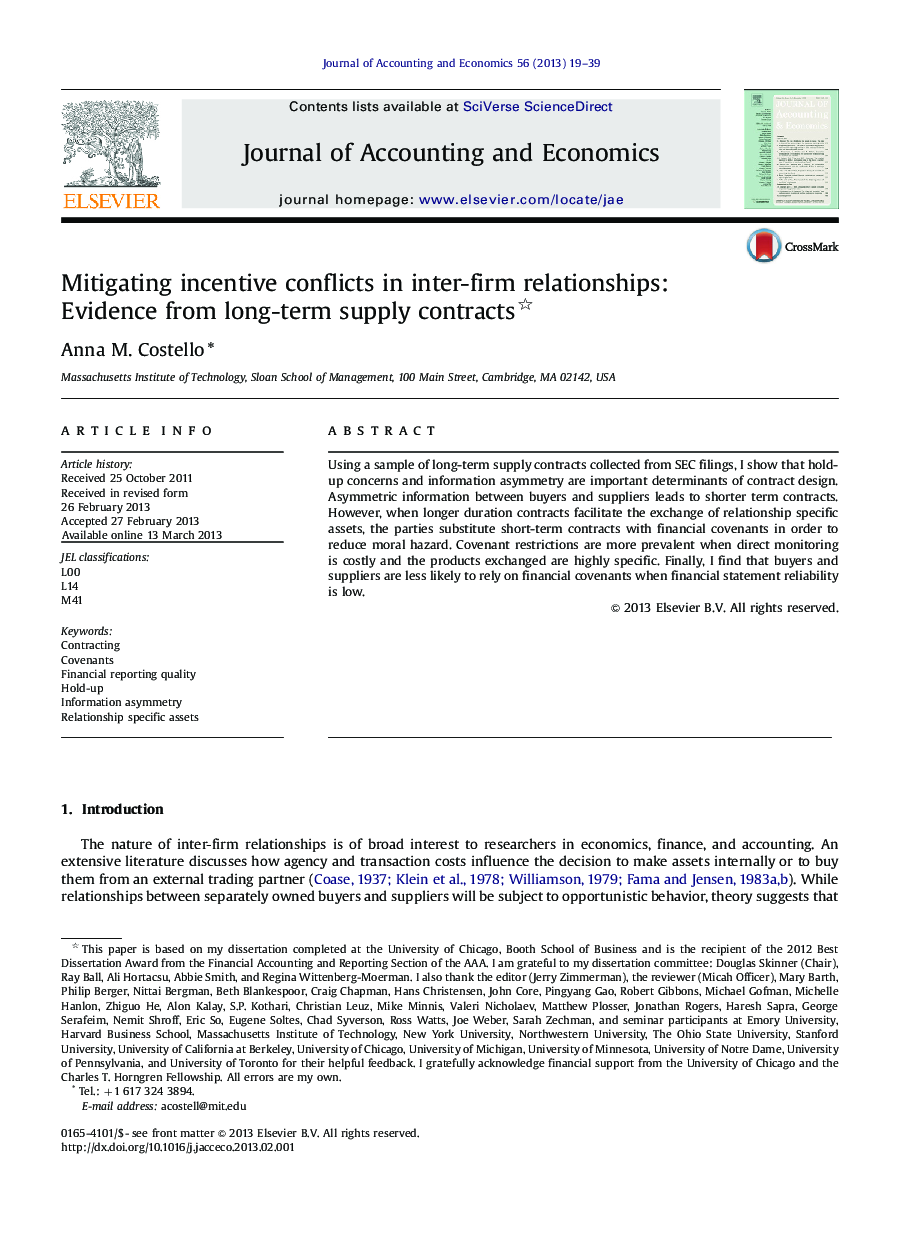| Article ID | Journal | Published Year | Pages | File Type |
|---|---|---|---|---|
| 5086795 | Journal of Accounting and Economics | 2013 | 21 Pages |
Abstract
Using a sample of long-term supply contracts collected from SEC filings, I show that hold-up concerns and information asymmetry are important determinants of contract design. Asymmetric information between buyers and suppliers leads to shorter term contracts. However, when longer duration contracts facilitate the exchange of relationship specific assets, the parties substitute short-term contracts with financial covenants in order to reduce moral hazard. Covenant restrictions are more prevalent when direct monitoring is costly and the products exchanged are highly specific. Finally, I find that buyers and suppliers are less likely to rely on financial covenants when financial statement reliability is low.
Related Topics
Social Sciences and Humanities
Business, Management and Accounting
Accounting
Authors
Anna M. Costello,
